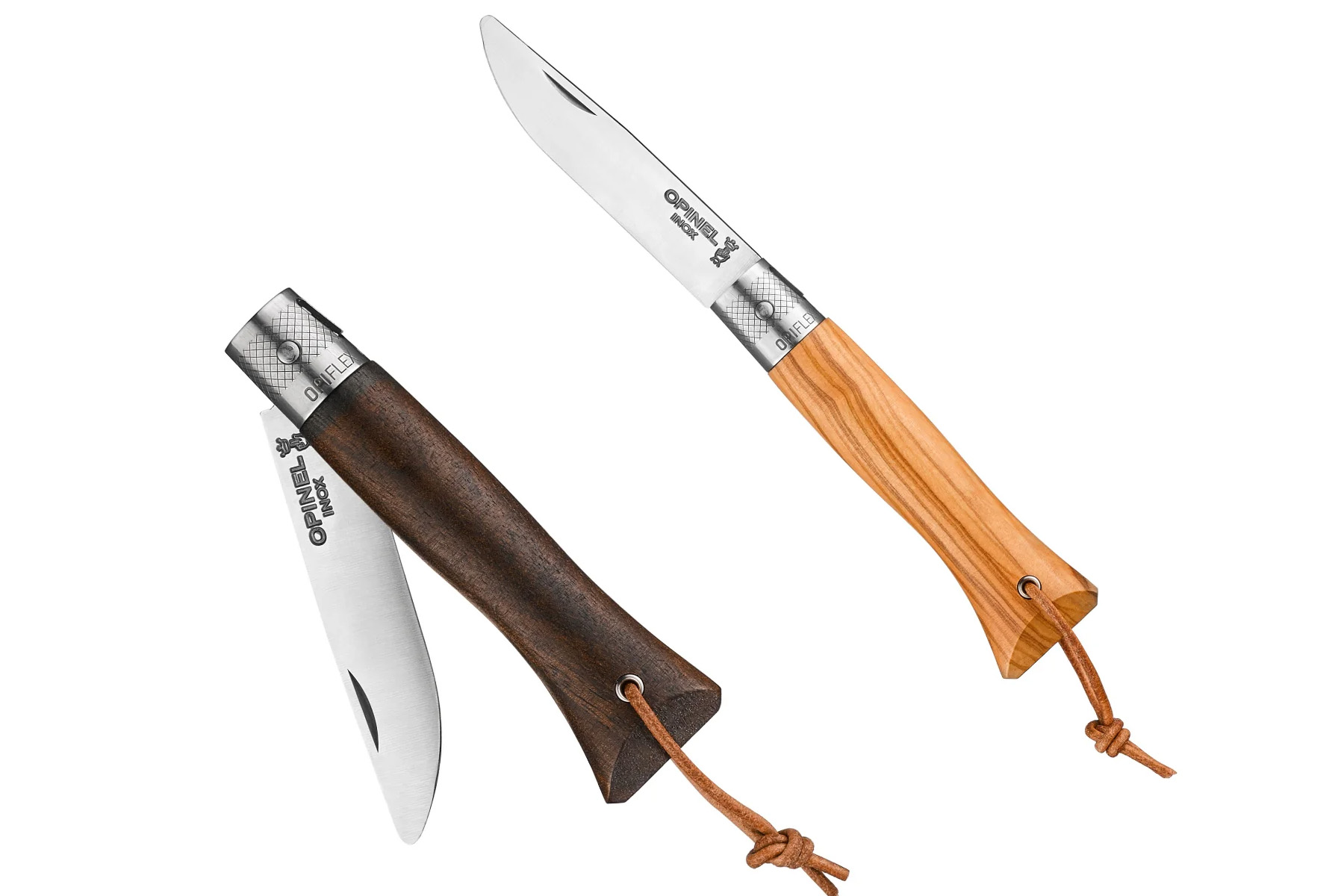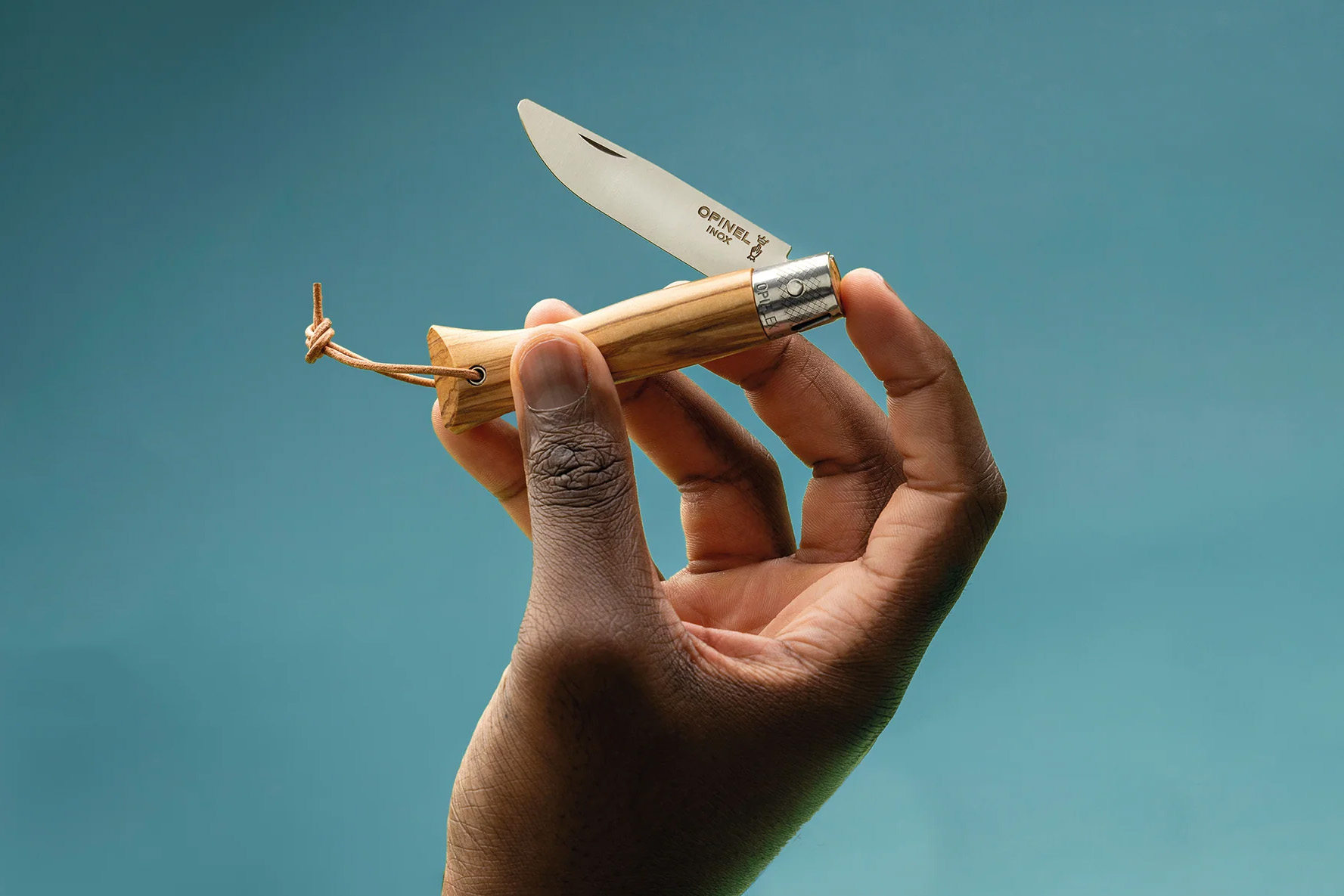Since 1890, French knifemaker Opinel has been crafting affordable, reliable, folding knives that are easily recognized by their distinctive wooden handles. Opinel’s simple construction enabled the company to keep its prices low, and thus buoyed the brand’s sustained popularity among the outdoor crowd over the last 135 years.
However, the one thing Opinel is not known for is change.
While its variety of knives has grown over the years, including new models, colors, and aesthetic collabs, the knives’ fundamental form and function have remained relatively unchanged. Aside from a stainless steel variant for some models, the last time any functional upgrades were made to these knives was back in 1955, when Opinel introduced its “Virobloc” locking collar.
Seventy years later, Opinel has just made its first functional change since the Eisenhower administration. Called “Opiflex,” this innovation not only addresses safety, but also laws and restrictions regarding knives worldwide.
Opinel Opiflex
Where the Virobloc allows users to lock the blade of their knives, the Opiflex works much the same way as a Victorinox knife blade does.
Instead of locking, the blade opens and is held in place by a strong detent. This keeps the blade from opening in your pocket or closing while you’re using it. It also keeps the knife legal in otherwise stringent states and counties where locking blades have been banned.
The Opiflex black-locking system is currently available on Opinel’s Néo6 Everyday Carry Folding Knife ($35) with an olive wood or walnut handle. The knife is stainless steel and has an overall length of 6.5 inches.


The tip of the blade is rounded to maneuver around knife laws and restrictions, without limiting its overall functionality.
With a simple leather lanyard and the new Opiflex mechanism, could the Néo6 become a favorite do-it-all/go-anywhere pocket knife? Be on the lookout for a full review of the Néo6 before summer’s out.
Read the full article here




